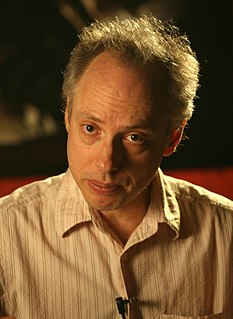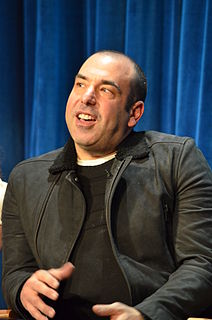A Quote by Billy Bob Thornton
All the actors I've worked with as a director over the years I really love and I thought they were all right for the part.
Related Quotes
To go into more specifics regarding actors, whether they're from Korea or the U.S., all actors know if they are loved by the director. When they feel that love from the director, they respond by giving a great performance on camera. Also, everyone on set - the crew, the actors - they were aware of the film's message and its broad theme, so these big issues were never discussed on set.
I think casting is really important. Finding the right sensibility for the right part is an art in itself. If you're off there, you make it harder on yourself as a director. And it's fun to work that out with the actors. I don't think there's any magic to directing actors. It's very instinctual. Working with actors is really one of my favorite creative moments of the whole process, and the most fun, because it's collaborative. I spend a lot of time rehearsing. I'm very rehearsal-oriented, probably because I have some background in theater. I like knowing what will work beforehand.
Snow Cake is a lovely film. Really proud of that. We shot it in 21 days. I thought Sigourney was amazing in it. And very, very accurate. I think there was some element that thought she had pushed it too far. But not at all when you do the amount of homework she had done and spent the amount of time she did with adult autistics. She was right on the money. And I think Marc Evans is a terrific director. He's a sweet, open, honest man and a really good director of actors.
When I got into the movie business, working with actors was the one thing I was really weak at. I didn't know what to say to actors. They scared me and intimidated me. The actors that I've worked with who have had a lot of experience, or who I've even grown up watching as a kid, were really scary. I was like, "What am I going to say to this person?" But, I've matured. It's fun. I understand what actors do now.
I love actors, both my parents were actors, and the work with actors is the most enjoyable part of making a film. It's important that they feel protected and are confident they won't be betrayed. When you create that atmosphere of trust, it's in the bag - the actors will do everything to satisfy you.
I started taping my dad's auditions when I was 11, when he was auditioning actors for one of his movies. I would see, over and over again, that there wasn't just one actor for the role. It was really clear that there were a lot of people who could play a character really well, and it would always come down to something kind of weird and non-obvious as to why a person was cast. If you're not right, you're not right, but that's okay.
When I was younger I didn't really know what a director did: I knew I loved movies and I figured the actors made it up! And then when you get to 12 years old you start thinking, What does a director do? It was really an organic beginning: this looks like something I want to do, I can't believe people get paid to do it!
I learned a lot from Clint [Eastwood], who's an extremely economic director. I learned a lot from Michael Winterbottom, who really gave a lot of trust in the actors and allowed them to live in the space instead of trying to manipulate and make it too set and too staged. Working with [Robert] De Niro taught me a lot of being an actors' director and what that is. I've learned a lot from pretty much everybody. Hopefully I've picked up something from everybody I've worked with.
Your actors need to trust you as a director, but normally, I think you just need to have an open communication between the actors and the director. I think the director needs to really paint his or her vision to the cast and let them know the kind of mood that he or she is making. I think that's very important.




































